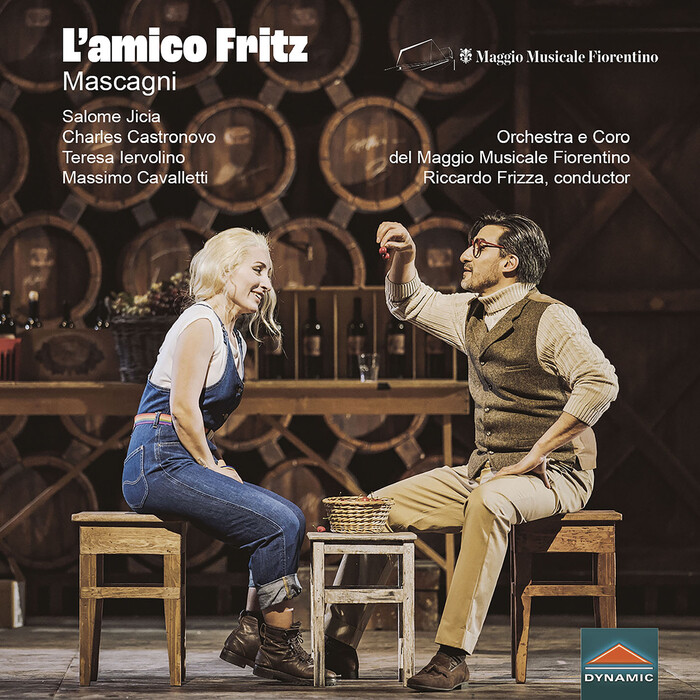Why Did the Nazis Ban Mascagni’s Opera l’Amico Fritz?
 A new recording from the Dynamic label let’s you listen to this gentle pastoral opera by Pietro Mascagni and decide why the Nazis found it so objectionable
A new recording from the Dynamic label let’s you listen to this gentle pastoral opera by Pietro Mascagni and decide why the Nazis found it so objectionable
What was Pietro Mascagni to do after the sensational success of his verismo opera Cavalleria Rusticana in 1890?
Mascagni made the considered decision to write l’Amico Fritz (“Friend Fritz”) an opera that was far different in mood from his blood-and-guts Cavalleria. Instead, he chose to write an opera based on the French novel L’ami Fritz, written in 1864 by Emile Erckmann and Alexandre Chatrian. L’amico Fritz presents a gentle, semi-comic story of village life. It was an immediate success when it was premiered in Rome in 1891, even though it did not generate the furor that Cavalleria did.
In the decades that followed, Fritz was often performed in Italy. But it was banned in the early 1930s by the Nazis and the Italian Fascists.
Why? What made Fritz so objectionable to fascists?
There is a simple answer. One of the main characters is a Rabbi named David. He is the best friend of Fritz, the title character. Another character is a Roma boy named Beppe (a trouser role sung by a mezzo) who doesn’t do anything too objectionable. The sympathetic presentation of these two characters was too much for the Fascists to endure, so they banned the opera. After the second World War ended, performances of Fritz resumed. But it never became a great favorite.
Now a New Recording of Fritz Lets You Listen and Decide
Truth be told, Fritz is not a revolutionary opera. It falls more within the “tuneful” category. Of all the tunes, the most perennially beloved has been a duet for soprano and tenor, commonly called the “Cherry Duet” that has been recorded many times over the years by opera stars.
But now there is an excellent recording of Fritz you can explore on Classical Archives if you are a member. It is a live performance from the stage of the Maggio Musicale with a strong cast that includes tenor Charles Castronovo and soprano Salome Jicia. The conductor is Riccardo Frizza. It makes for a very pleasant few hours of listening.
So, what did the fascists find so objectionable in this lighthearted tale? The presence of a rabbi and a gypsy, that’s what. We are sure the roles they play in the plot won’t bother you a bit. Just listen to this effervescent, lighthearted opera and enjoy.
The fascists missed out on something, but you don’t have to.





Recent Comments